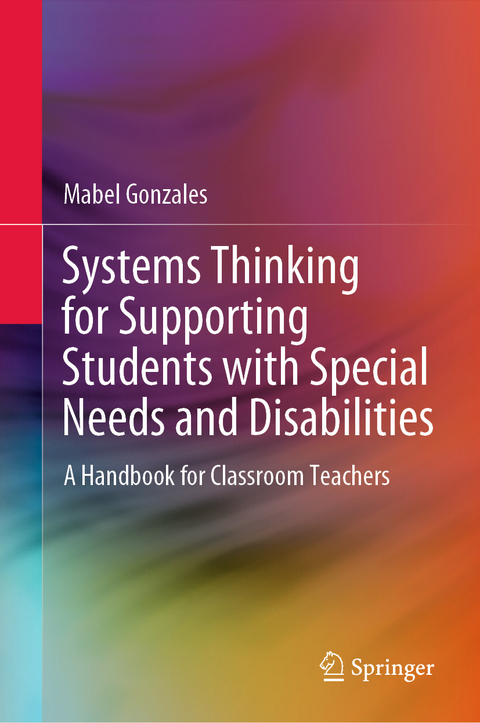
Systems Thinking for Supporting Students with Special Needs and Disabilities
Springer Verlag, Singapore
978-981-334-557-7 (ISBN)
This book provides school leaders and teachers with research-based theories and models on systems thinking and on inclusive education. It offers the ‘why’, ‘what’ and ‘how’ of inclusive teaching and learning with specific references to a range of special needs. It discusses topics such as a sustainable approach to inclusion, differentiation of learning programs and activities, and a range of assessment approaches to support teaching and learning. The book also presents the social aspects of inclusion and encourages teachers and school leaders to focus not only on the academic aspects of education but the social and emotional growth of the student. It highlights the value of parent input and promotes the forming of parent partnership to enhance student learning and wellbeing. Part One of the book gives practical suggestions on how school leaders can apply systems thinking to mobilise the school and school community to contribute to the ideals of Education For All. Part Two discusses arange of disabilities with each chapter covering the medical definitions and characteristics of the condition, the challenges faced by the student, their parents and teachers, and presents evidence-based strategies and classroom management tips to help teachers with their everyday classroom needs.
The book helps to heighten school leaders’ awareness on how to use systems thinking to mobilise the school community to action. It strengthens teachers' confidence and builds their capacity in providing all students with access to flexible learning choices to help them achieve educational goals and develop a sense of belonging.
Mabel Gonzales has over thirty-five years of experience as a classroom teacher, teacher educator, school executive, education consultant on special needs and inclusive education, and leadership coach. She has taught a wide range of students with and without special needs and disability in Hong Kong and Australia. With her hands-on, learner-centred experience, Mabel specialises in building the capacity of future-focused educators, teachers and school leaders to foster an understanding of the interplay of educational theories and practice. Being still active in classroom practice, Mabel shares her insights gained through lived experience, interactions with students and teachers and partnership with parents and members of the school community. Her extensive practice gained through working with children from preschool to post-secondary students gives her credibility in her authorship of this book. She has been a strong advocate for inclusive education since the 1980s and has given public speeches and international conference presentations to promote equity in education for students with special needs and disability. Her wealth of knowledge in Inclusive Education is invaluable.
Chapter 1 Understanding Inclusive Education.- Chapter 2 Supporting students with Attention Deficit Hyperactive Disorder (ADHD).- Chapter 3 Supporting students with Autism Spectrum Disorder (ASD).- Chapter 4 Supporting students with Cerebral Palsy.- Chapter 5 Supporting students with Deafblindness.- Chapter 6 Supporting students with Dyslexia.- Chapter 7 Supporting students with Emotional and Behavioural Disorder (EBD).- Chapter 8 Supporting students with Giftedness.- Chapter 9 Supporting students with Hearing Impairment.- Chapter 10 Supporting students with Vision Impairment.
| Erscheinungsdatum | 15.01.2021 |
|---|---|
| Zusatzinfo | 16 Illustrations, color; 36 Illustrations, black and white; XXIII, 271 p. 52 illus., 16 illus. in color. |
| Verlagsort | Singapore |
| Sprache | englisch |
| Maße | 155 x 235 mm |
| Themenwelt | Geisteswissenschaften ► Psychologie ► Pädagogische Psychologie |
| Sozialwissenschaften ► Pädagogik ► Didaktik | |
| Sozialwissenschaften ► Pädagogik ► Sonder-, Heil- und Förderpädagogik | |
| ISBN-10 | 981-334-557-8 / 9813345578 |
| ISBN-13 | 978-981-334-557-7 / 9789813345577 |
| Zustand | Neuware |
| Haben Sie eine Frage zum Produkt? |
aus dem Bereich


